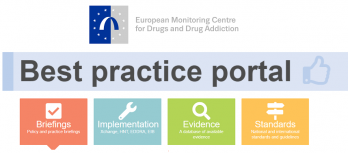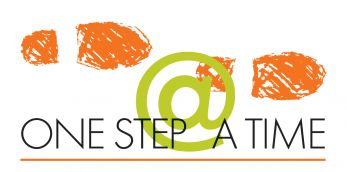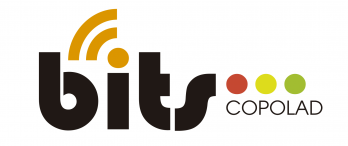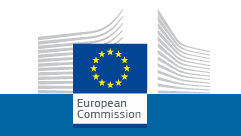"The implementation of a broader concept of Alternative Development would help to reduce drug trafficking, which affects the society so much and would promote the development of the communities"
ReturnPublished on 30/08/18
Ever Danilo Mejía Mejía is Deputy Commissioner of Police with a degree in Police Sciences, by the National Autonomous University of Honduras and the National Police University. Mentor in preventive education programmes, specialist in local police, anti-narcotics investigations, special anti-drug operations, canine guidance, processes systematization, strategic and tactical intelligence management, anti-gang and extortion investigation. He has held positions of Drug Investigation Team Leader, Director of the DARE Programme, Deputy Chief of Community Police, Chief of the National Police Anti-gang Information Unit, Chief of the Task Force of Units in Special Operations, Director of the National Anti-Extortion Force and National Deputy Director of the DNII and has participated in international Missions as an Instructor in prevention courses in Costa Rica, Colombia, Bolivia, Mexico, El Salvador and the United States and as speaker at several international conferences related to organized crime.
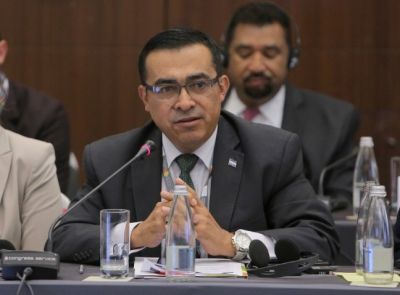
What are the most important measures planned in the drugs field by the Government of Honduras in line with the new regional policies adopted in the Northern Triangle of Central America, especially in relation to the seizure of assets and capital?
Among the most important advances in the Northern Triangle are:
- Adoption of the figure of expired ownership.
- Recovery of assets for restitution to victims.
- New Special Law against Asset Laundering that contemplates the seizure of assets as an accessory penalty.
- Creation of a specialized agency for the administration of seized assets.
- Preparation of three Regulations (Administration of seized assets, Substitution of contracts and Financial investments)
- To what extent can the exchange of information enabled by COPOLAD between the National Directorate of Investigation and Intelligence (DNII) and other security forces of the CELAC countries and the EU contribute to the application of these policies?
As a State we are willing to share good practices related to these implemented policies given that, in our environment, they have represented an enormous support for the execution of inter-institutional operations at the national level, as a region among the Central American countries and mainly in the Northern Triangle (Honduras, Guatemala and El Salvador), successful operations based on the expeditious exchange of information have been carried out, we want to contribute to strengthening the international efforts between the CELAC and the EU, striving in this way to better manage our resources and turn operational efforts into effective and successful results.
- Which are the main contributions for your country from the COPOLAD’s Annual Weeks on precursors and what are the main developments and improvements that should be applied in this area in the coming years at the regional level?
- Keeping up to date with the legal and technological systems that other countries have.
- Knowledge of new ways in which organized crime operates for the import and diversion of substances for drug trafficking purposes.
- Knowledge of the capacities and professionalization of human capital available to countries and, at the same time, the possibility of establishing relationships through bilateral agreements.
What should be sought is the establishment of a formal system for the exchange of information regarding the updating of the lists related of new substances available in international markets. At the same time, to carry out trainnings directed to officials working on investigating the diversion of chemical precursors.
- How can the adoption of a broad concept of alternative development in the Americas contribute to an improvement in the rates of violence in Honduras?
The implementation of the broad concept of Alternative Development would help reduce drug trafficking, which affects society so much, and would promote the development of the communities, providing them with different tools that bolster the development of areas that have historically been immersed in drug trafficking through business and activities stemming from this criminal activity around which their economy has revolved.
In view of the reality of Honduras, what are the main challenges to advance in the development of alternatives to incarceration for minor drug-related crimes?
In the case of consumption, creating Treatment and Rehabilitation Centres, attached to the Penitentiary System, with adequate conditions for the provision of care to drug users. Facilitating agreements for the revision of the National Legislation in order to benefit people with drug use-related problems, through opportunity and sentence reduction criteria.
- How important is it for your country to have a Honduran Observatory on Drugs and a National Drug Strategy, and what are the advantages of having this task, with advice from neighbouring countries such as El Salvador and Costa Rica?
It is very important because the Strategy gives us the opportunity to execute the work in an orderly manner and with defined objectives; Through the Honduran Observatory on Drugs, we collect the information generated by the actions undertaken by State and non-State entities, which helps in the design and implementation of public policies. We also consider that in three and a half years of existence, important steps have been taken and much experience has been gained; in relation to advice, we think it appropriate, not only to receive but to be able to share our good practices with neighbouring countries.
- At the recent COPOLAD's Annual Conference, Honduras noted the importance of offering training and empowerment to women in positions of responsibility for political decision-making on drugs. How is your country facing the challenge of incorporating a gender perspective in this area?
In all government areas, efforts are being made to ensure that women perform key tasks, and they are a fundamental part of the drug trafficking area, both at bureaucratic and operational level, and the Executive Secretariat for Anti-Narcotics Issues is an example, which is why we pointed it out in the recent Annual Conference, since approximately 60% of its staff is made up of women.
The European Commission is preparing a third phase of this programme, therefore COPOLAD will be back at the beginning of 2021.


